機械工学とはどの様な学問で、何を学び、どの様な基礎知識を身に付け、どの様にその知識を役立てるかなどについて、実際の体験を通して自らの手を使い、頭で考えることで機械工学の基礎を学習します。また実験・解析の整理に必要なExcelや、レポート作成に必要なWordなどのコンピュータソフトウェアの使い方、更にはレポート作成法などを学び、実際にレポートを作成します。
機械創造工学科
DEPARTMENT OF MECHANICAL ENGINEERING
SAGAMIHARA CAMPUS
21世紀を支える"ものづくり"とは?
ハードとソフトの知を結集し、可能性を拡げよう
- MENU -
MOVIES 動画で知る機械創造工学科
FEATURES 学科の特色
-
機械工学全般の基礎力を習得
材料、熱、流体、機械の四力学を中心とした多様な講義科目を通じて、機械のハードウェア、ソフトウェアを構築できる基礎力を身に付ける事ができます。
-
機械システムを構築できる総合力を修得
充実した実験・実習科目を通じて、講義科目で培った基礎力を複合的・統合的に使用して、機械システムを構築できる総合力を養う事ができます。
-
実社会のエンジニアに求められる思考力を養成
社会人による講義や工場見学などを通じて、時間感覚、コスト意識など、機械システムの企画から、研究・開発→生産→販売→運用・維持・管理→廃棄→循環までを扱える思考力を培う事ができます。
-
未知へ挑戦し、新しいものを創出する創造力を錬成
ラボ・ワークや高度実践プログラムと言った「研究を実施できる」独自の科目を通じて、未知テーマに挑戦し、問題を発見・解決すると言った創造力を鍛える事ができます。
PICK UP LECTURES 授業紹介
ものづくり実習
企画→設計→製作→組立→検査を体験する事で、ものづくり流れや過程を修得します。また、ものづくりの面白さと難しさ、ものの品質と掛かる時間などの相反する事象や、実際のものづくりに潜む危険などを経験します。
機械技術と社会
機械技術については、平均寿命を向上させ、生活を便利にするなどの正の効用がある反面、公害やエネルギー問題など負の効用が語られる事もあります。更には、汚染物処理や省エネルギー・新エネルギー開発など、生じた問題を解決するのもまた機械技術です。この講義では、教員3名と、数名の社会人技術者を加えて、機械技術と社会の関わりについて、様々な視点から講義します。
機械設計製図
渦巻ポンプの設計し、図面を製図します。設計要件を満たすのみでなく、競合他社製品に対して競争力のある製品設計を念頭に置きます。また、一連の技術を、実作業を通じて設計・製図に関する知識・技能を習得します。この技術は機械関係の業務に携わる場合、設計部門だけでなく製造、品質管理、サービス技術、営業など全ての部門で応用できるものです。
ラボ・ワーク
卒業研究に先んじて、2年生または3年生で履修可能な「研究」ができる科目です。通例の科目では「既知」の知識体系を学習しますが、研究では「未知」の事象を扱います。この為、自主学習、オリジナルな思考、ユニークな発想などが求められます。逆に言えば、これらの負荷によって、独創性・創造性を養成できます。
LABORATORIES 研究室紹介
超音波光学研究室(長 秀雄研究室)
長秀雄研究室では、光と超音波を用いて材料内部の損傷や材料の特性について、材料を壊すことなく非破壊で評価する技術を開発しています。光ではレーザや光ファイバを用いて新しい超音波センサを独自に開発しており、橋や石油貯蔵タンクなどの大型構造物の健全性の評価を行っています。また、超音波を利用して様々な部品や材料の特性を評価する独自のシステムの構築を行っています。これらの技術を通じて安全・安心の社会に貢献したいと思っています。
ジェット推進研究室(横田 和彦研究室)
水を代表とする流体は周囲の状況に応じて様々な形態に変化でき、その結果、想定外の振動を生じることがあります。タコマ海峡大橋崩落、高速増殖炉もんじゅ温度計破壊、HⅡロケット8号機エンジン停止などの重大な事故は、その時点では未知であった流体振動により引き起こされました。当研究室では、様々な流体振動について、実験、理論解析、数値計算などによる研究で、事故を予測、回避することを目指しています。
知技能ロボティクス研究室(田崎 良佑研究室)
ロボットの研究では人間自体を考え・問い・よく科学します。知能と技能をもつ機械を私たちの学びの良きパートナーと捉えて、人間を探求して自身を賢くする研究を実践します。人の作業・行動や物理現象の視触力覚計測・情報処理・システム論的理解・タスク知識を活かしたロボットの動作制御に関する研究を進めています。次世代生産プロセス、ヒトの運動能力アシストシステム、医療介護リハビリ向け支援などを対象とした知技能ロボットを実社会に応用する実践的研究です。
INTERVIEW 学生・卒業生・教員インタビュー
-
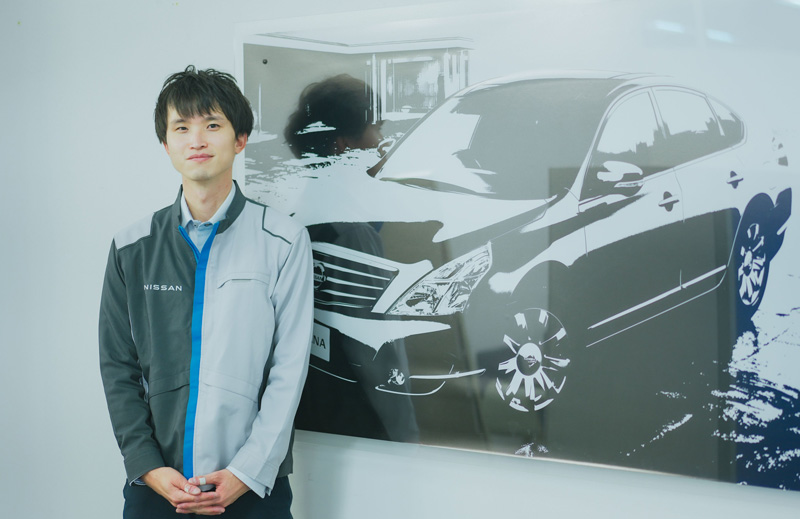 井戸 将統 機械創造工学科卒業
井戸 将統 機械創造工学科卒業コンセプトが実際に走る車に。多くの部署や人と連携して夢を具現化する自動車開発
(2024/2/14 公開)井戸 将統 機械創造工学科卒業 -
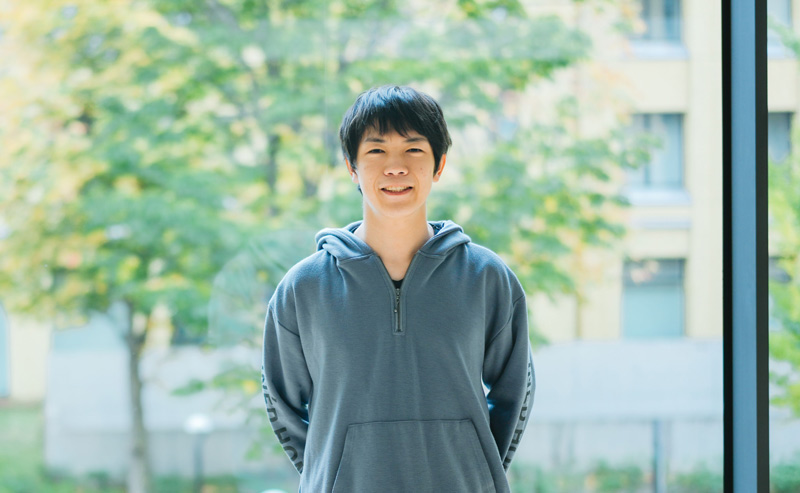 小塙 和輝 機械創造工学科
小塙 和輝 機械創造工学科音・吸音研究を通じて、安心して生活できる環境づくりに貢献したい
(2024/2/6 公開)小塙 和輝 機械創造工学科 -
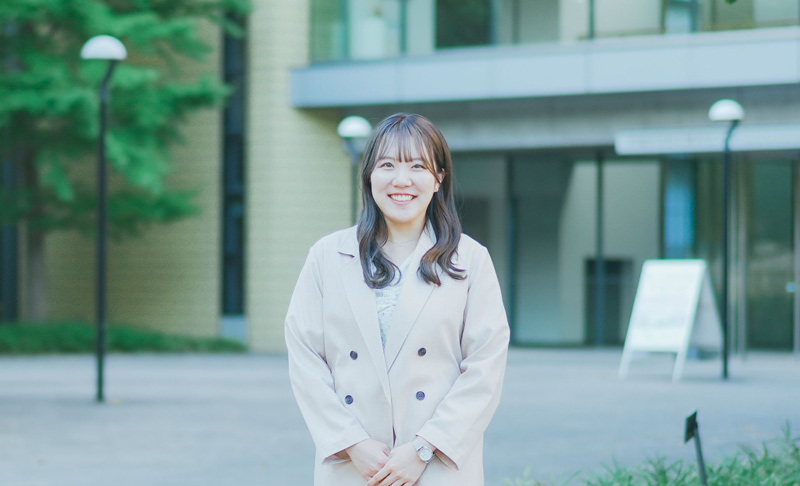 上野 藍香 理工学研究科 理工学専攻 機械創造コース
上野 藍香 理工学研究科 理工学専攻 機械創造コース手探りで始めた医療機器の研究。ひたむきな情熱と周囲のサポートが推進する力に
(2023/12/6 公開)上野 藍香 理工学研究科 理工学専攻 機械創造コース -
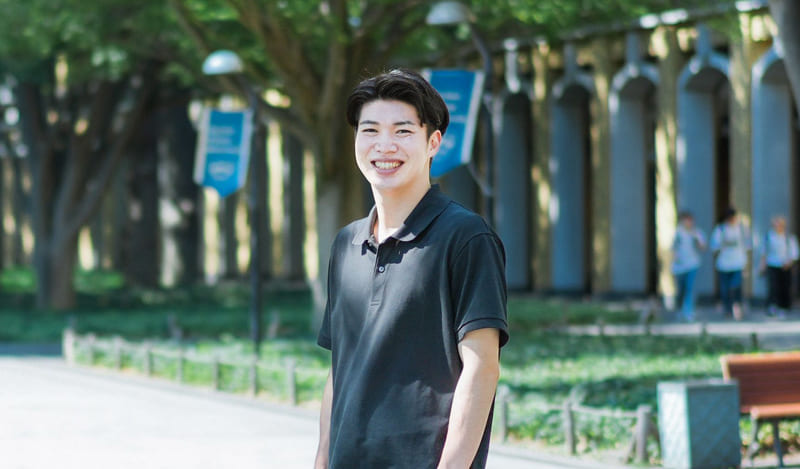 山本 航 機械創造工学科
山本 航 機械創造工学科自分が心からやりたいことを求めて化粧品業界への道を選ぶ
(2023/10/13 公開)山本 航 機械創造工学科 -
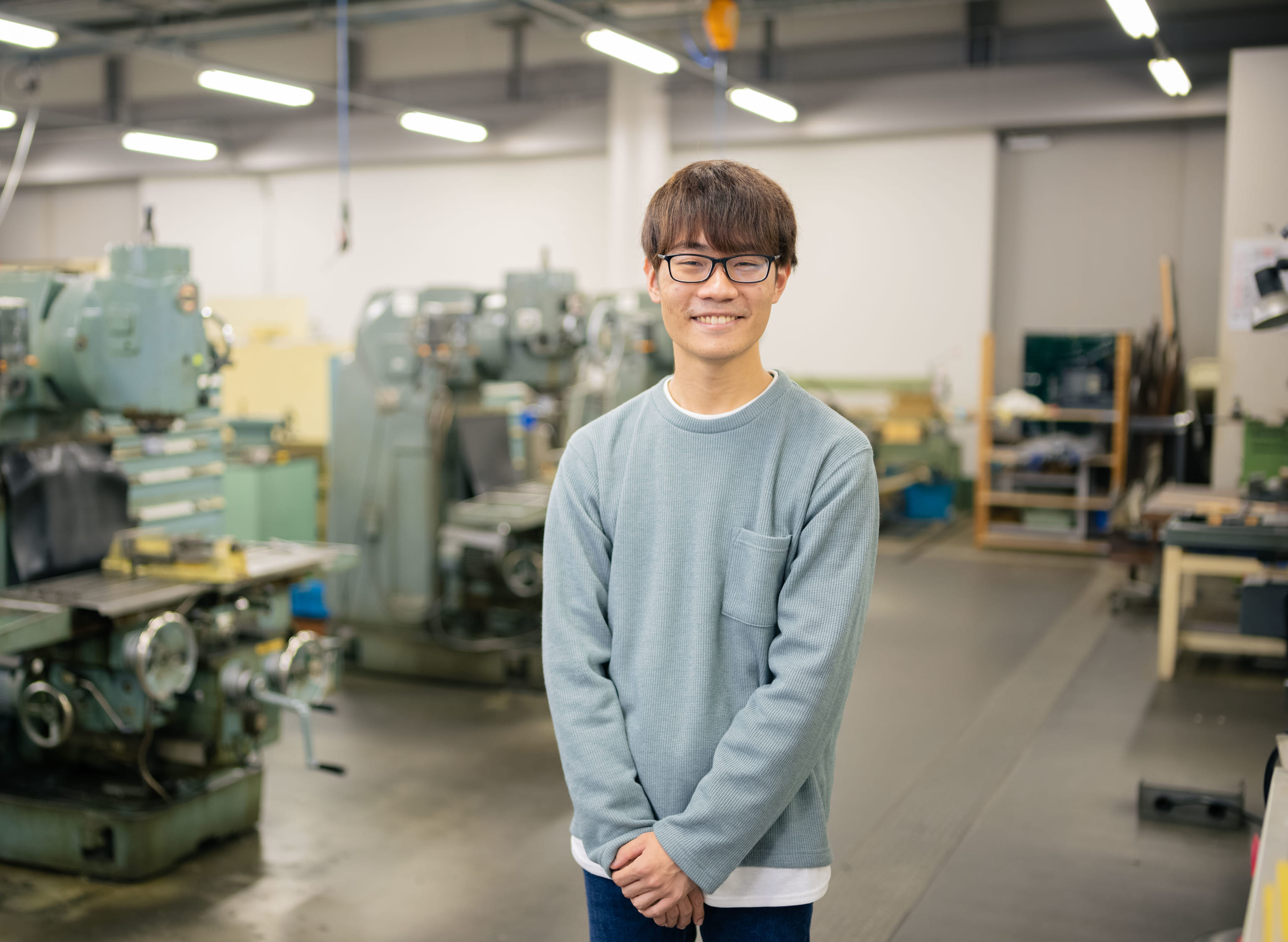 中川 賢人 機械創造工学科
中川 賢人 機械創造工学科憧れのロケットエンジンの研究に熱中できる喜びと感動が夢への原動力に
(2023/3/28 公開)
中川 賢人 機械創造工学科 -
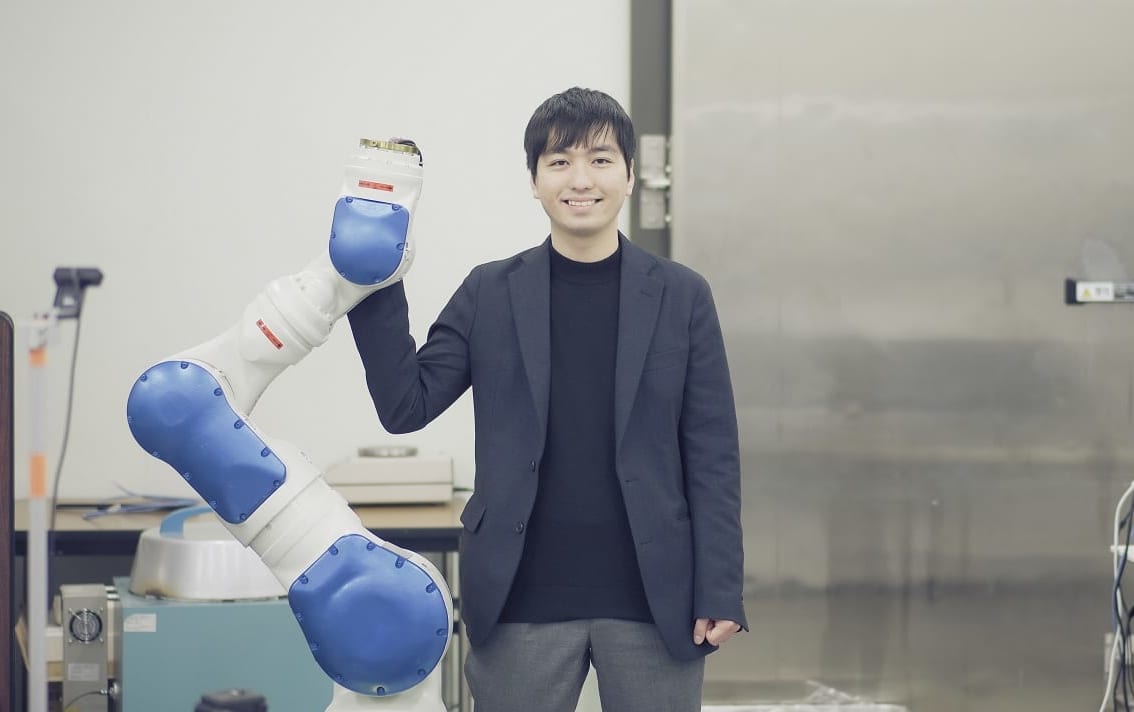 渡邉 一成 理工学研究科 理工学専攻 機械創造コース 博士前期課程
渡邉 一成 理工学研究科 理工学専攻 機械創造コース 博士前期課程<2021年度 学生表彰受賞>
金属加工の安全性と品質管理の課題に対する解決策の提供を目指して
(2022/5/10 公開)渡邉 一成 理工学研究科 理工学専攻 機械創造コース 博士前期課程 -
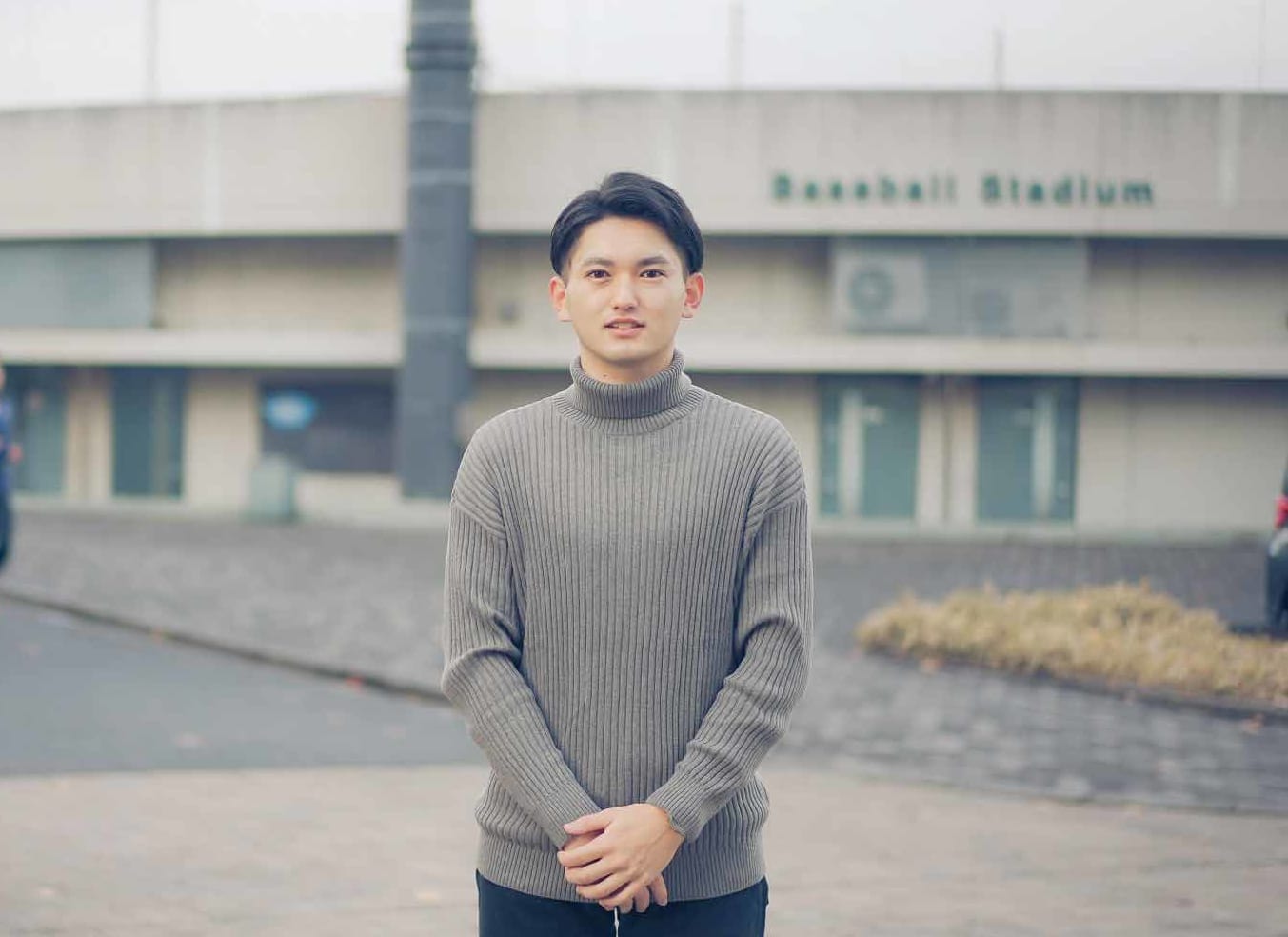 猪瀬 敦己 機械創造工学科
猪瀬 敦己 機械創造工学科主将として大切にしたチームメイトとコミュニケーション
(2022/2/7 公開)猪瀬 敦己 機械創造工学科 -
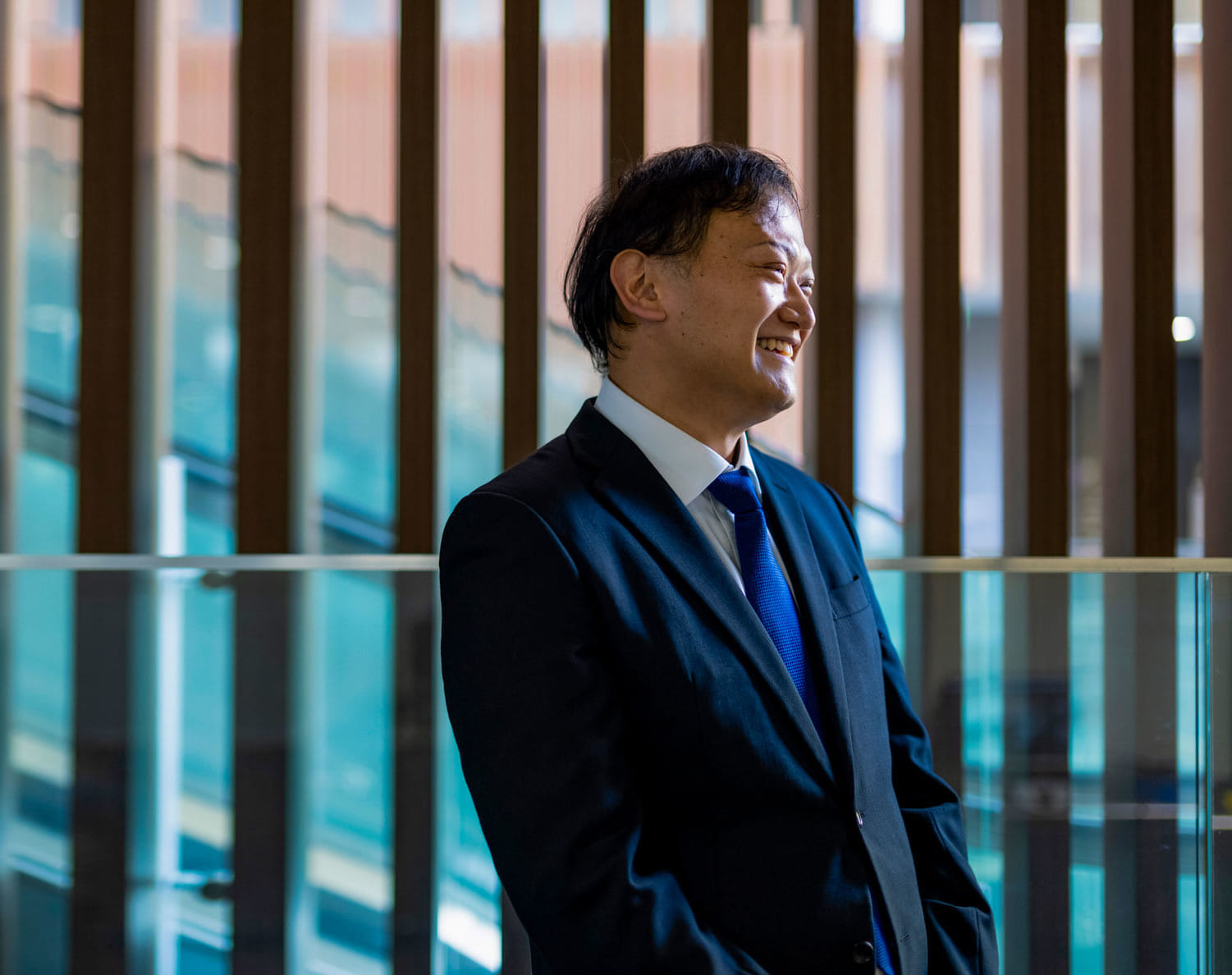 西澤 英雄さん 日本精工株式会社
西澤 英雄さん 日本精工株式会社精密なベアリングの開発でカーボンニュートラルの未来を支える
(2021/12/23 公開)西澤 英雄さん 日本精工株式会社 -
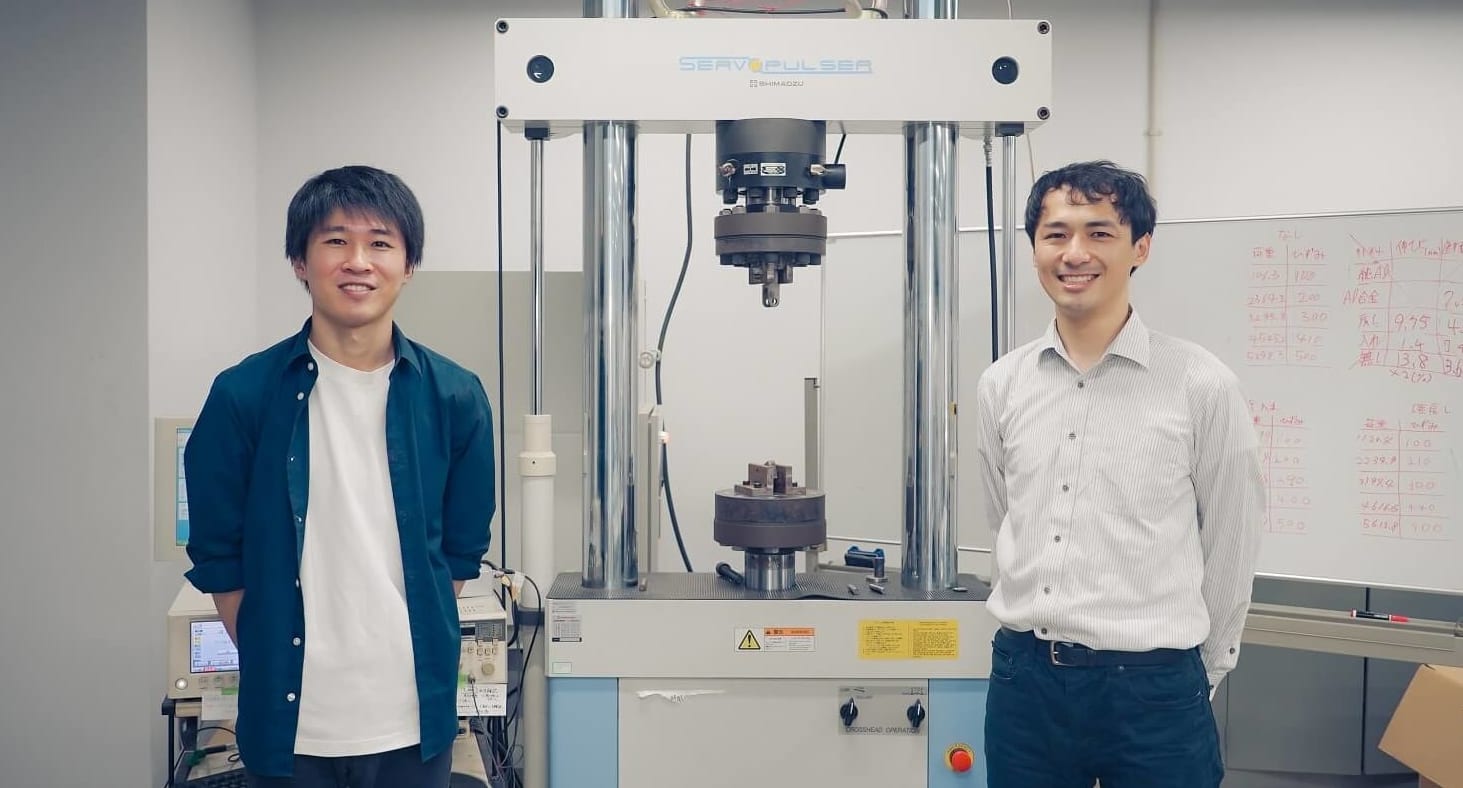 加藤 裕太 機械創造工学科 材料強度学研究室
加藤 裕太 機械創造工学科 材料強度学研究室研究室インタビュー
人々の生活を守り、社会に変革をもたらす材料の強度研究
機械創造工学科 准教授 蓮沼 将太 × 理工学研究科 理工学専攻 機械創造コース 加藤 裕太
(2021/11/29 公開)加藤 裕太 機械創造工学科 材料強度学研究室 -
 小島 有紀子/上野 慧 機械創造工学科
小島 有紀子/上野 慧 機械創造工学科研究環境が整う機械創造工学科で見つけた将来の目標
(2021/9/17 公開)小島 有紀子/上野 慧 機械創造工学科 -
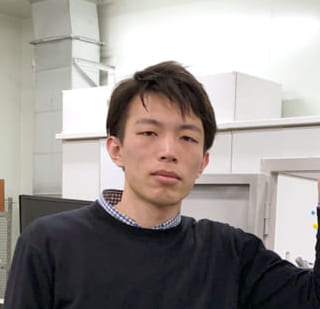 鈴木 凜汰郎 2019年度学生表彰受賞
鈴木 凜汰郎 2019年度学生表彰受賞工場の完全自動化という目標のため効率的な鋳造技術を研究
(2020/7/16 公開)鈴木 凜汰郎 2019年度学生表彰受賞